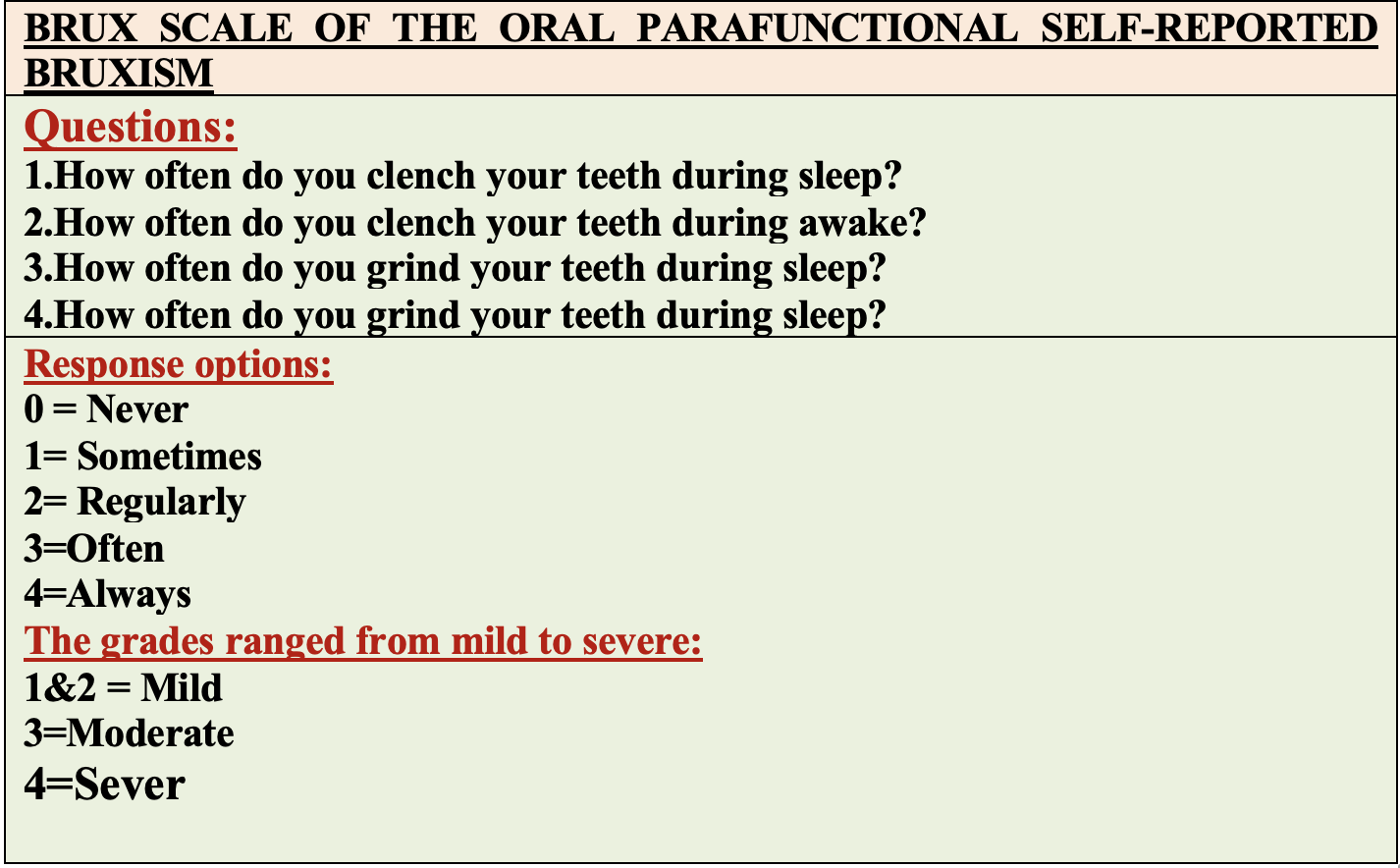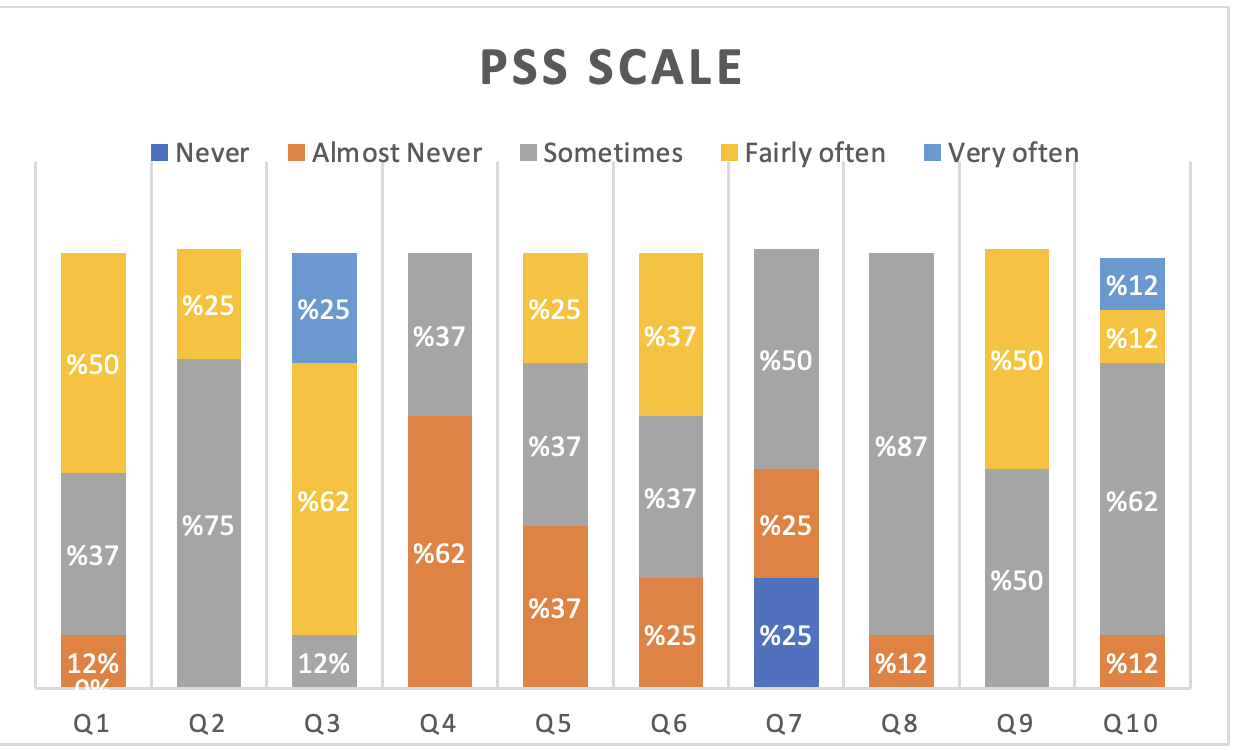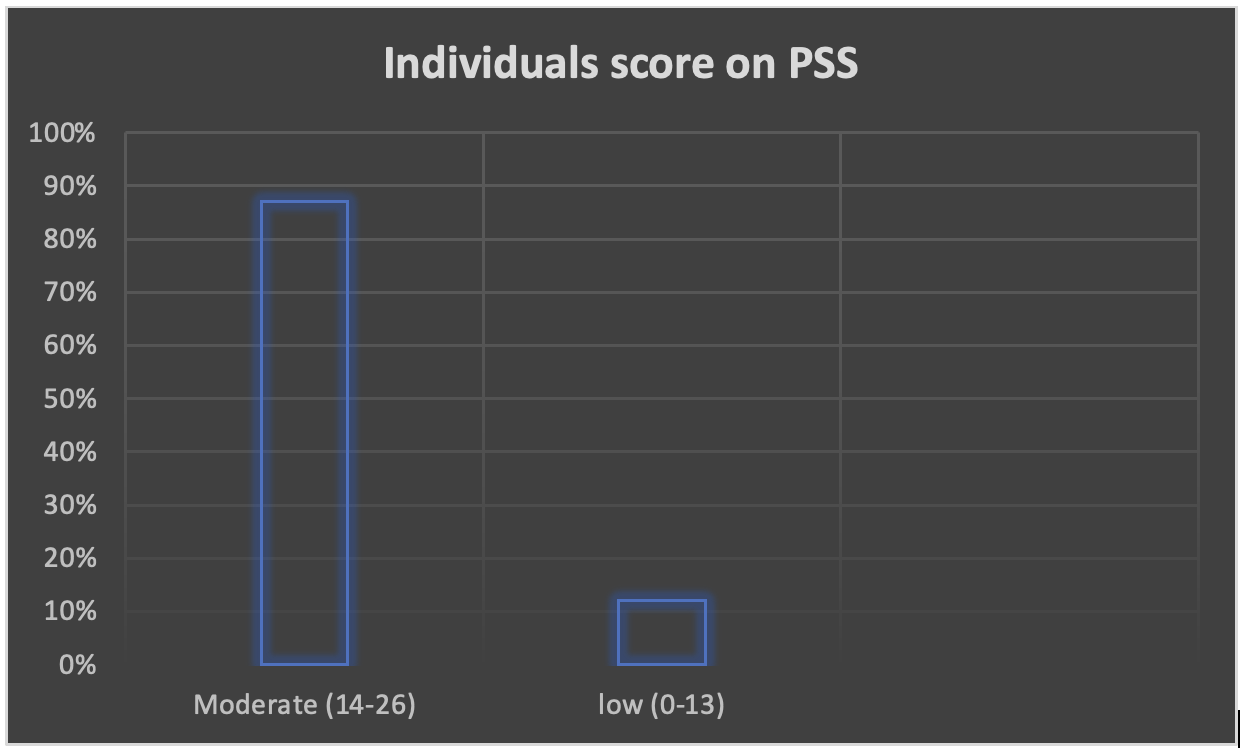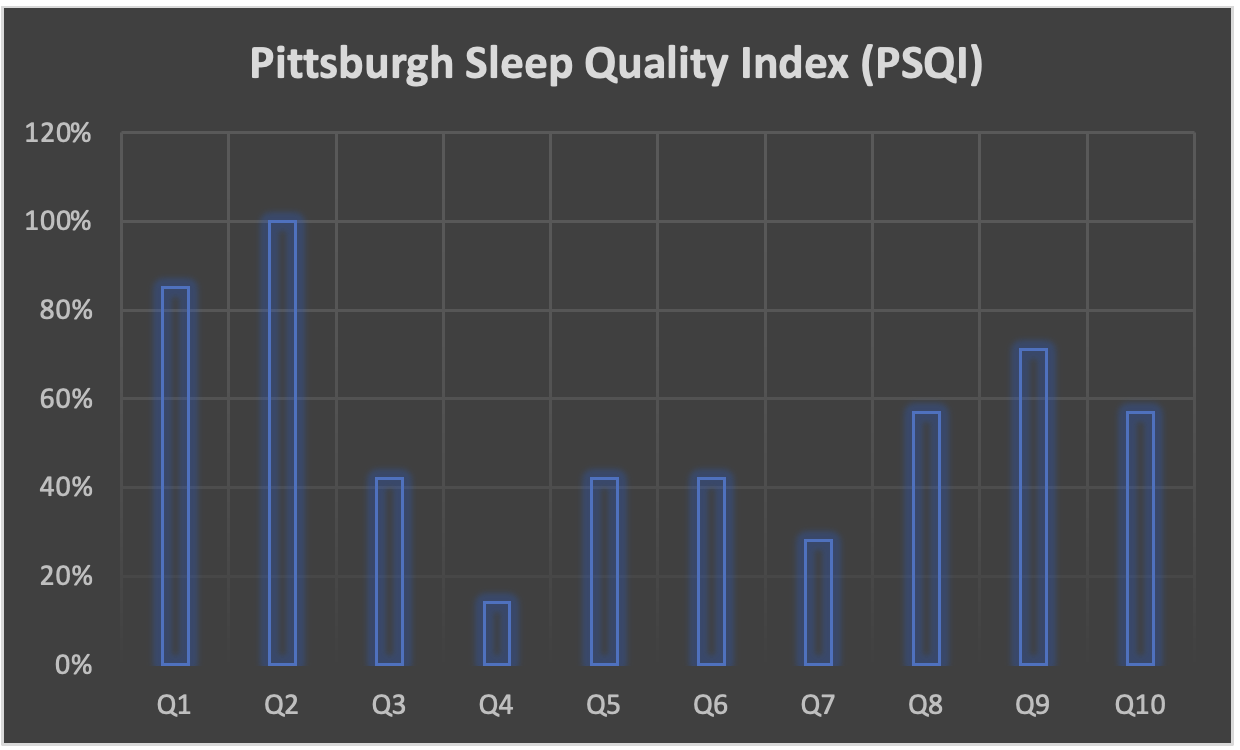Category: Allied Healthcare Professionals
Objective: The Current study highlights the correlation between bruxism and stress in a group of Egyptian university students.
Background: Bruxism is an involuntary contraction of the masticatory musculature that can be tonic (lasting more than 2 seconds), phasic (brief and repeated), or combined (alternating tonic and phasic) [1]. Despite believing that occlusal variables were the primary cause of bruxism, the occlusal adjustments did not decrease the bruxism episodes. Other factors that have been explored include neurological, mental, neurotransmitter disorders or even a movement disorder, and psychosocial factors such as stress and anxiety [2]. Obstructive sleep apnea, parasomnias, restless leg syndrome, mandibular myoclonus, and rapid eye movement disorders are all associated with bruxism. Also, it may be associated with disturbances in the GABAergic and glutamatergic system of the central nervous system. [3]
Method: Thirty Egyptian undergraduate females with mild to moderate bruxism according to the BRUX scale [4] Table [1]; self-reported on the perceived stress scale (PSS) [5]. and items 5 and 10 of the Pittsburgh Sleep Quality Index (PSQI) [6] throughout their final Exam period.
Results: According to the PSS-10 scale, scores can range from 0 to 40; the higher the scores, the higher the stress level. 87.5 % of subjects reported a moderate stress level, while 12.5 % had a low stress level. Figures [1,2]. According to the PSQI, [Q1] 85% were unable to get to sleep within 30 minutes; [Q2] 100% woke up in the middle of the night; [Q3] 42% were unable to breathe comfortably; [Q4] 14% were coughing or snoring loudly; [Q5] 42% had bad dreams; [Q6] 42% had legs twitching or jerking while sleeping; [Q7]28% had other restlessness while sleeping ; [Q8] 57% experienced other episodes of disorientation or confusion while sleeping; [Q9] 71% felt too cold; and[Q10] 57% had overthinking. Figure [3].
Conclusion: This study showed a strong correlation between bruxism and stress levels in Egyptian university female students, particularly during exams. More research should be done.
References: 1-Melath, A., Arjun, M. R., Mahesh Raj, V., & Subair, K. (2022). Bruxism-A Periodontal Overview. Journal of Dental Science Research Reviews & Reports. SRC/JDSR-144. DOI: doi. org/10.47363/JDSR/2022 (4), 130, 2-5.
2- Vlăduțu, D., Popescu, S. M., Mercuț, R., Ionescu, M., Scrieciu, M., Glodeanu, A. D., … & Mercuț, V. (2022). Associations between Bruxism, Stress, and Manifestations of Temporomandibular Disorder in Young Students. International Journal of Environmental Research and Public Health, 19(9), 5415.
3- Bulanda, S., Ilczuk-Rypuła, D., Nitecka-Buchta, A., Nowak, Z., Baron, S., & Postek-Stefańska, L. (2021). Sleep Bruxism in Children: Etiology, Diagnosis, and Treatment—A Literature Review. International Journal of Environmental Research and Public Health, 18(18), 9544.
4-ZAKARIA, H. M., MYASSAR, A., USAMA, A., & SALAH, A. S. (2022). The Impact of Electromyography Biofeedback Training on Myofascial Pain on Patients with Bruxism. The Medical Journal of Cairo University, 90(6), 771-779.
5- Kirov, D., Doichinova, L., Deliverska, E., & Kirilova, J. (2022). Assessing the influence of increased stress on bruxism during the COVID-19 pandemic. Journal of IMAB–Annual Proceeding Scientific Papers, 28(1), 4237-4241.
To cite this abstract in AMA style:
MYA. Amine, U. Dakrory. Association between Stress and Bruxism in Egyptian University Female Students Throughout Their Final Exam Period [abstract]. Mov Disord. 2023; 38 (suppl 1). https://www.mdsabstracts.org/abstract/association-between-stress-and-bruxism-in-egyptian-university-female-students-throughout-their-final-exam-period/. Accessed April 18, 2025.« Back to 2023 International Congress
MDS Abstracts - https://www.mdsabstracts.org/abstract/association-between-stress-and-bruxism-in-egyptian-university-female-students-throughout-their-final-exam-period/




